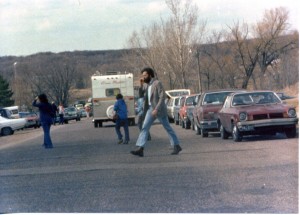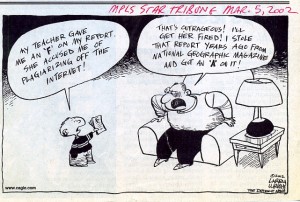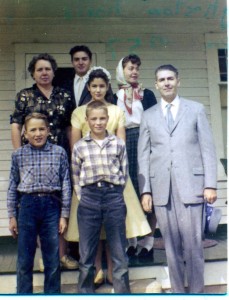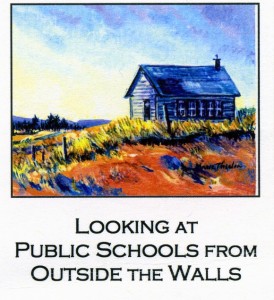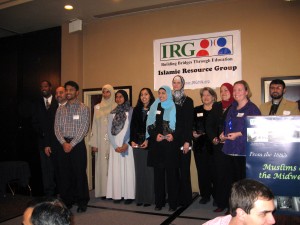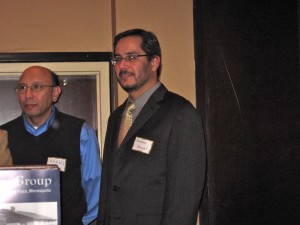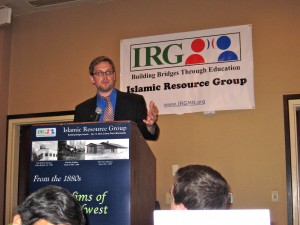#360 – Dick Bernard: Returning to the Eighth Grade
April 15 we were invited to an event at Friendly Hills Middle School in Mendota Heights MN. “Telling the Story of WWII and the Holocaust” was the event: “An Interdisciplinary Project between Language Arts & Social Studies” involving eighth graders in five classes at the school, each of whom had worked on a particular project for the preceding three weeks, culminating in their own museum display.
It was a fascinating program: great learning and great public relations. I congratulate the students, teachers and school.
I remembered back to the 1960s when I taught 8th graders for nine years. Yes, the ‘genus and species’ remains the same: kids are kids. I remembered further back, to 1953-54, when I was in eighth grade. The same….
We went from display to display. They were as one would expect, many very nicely done. In 1953-54 and my last year of teaching, 1971-72, they would have been assembled in roughly the same way: paper glued on pieces of recycled cardboard, etc. But such a gathering would be very unusual.
The difference, and it is a huge one, is technology and accessibility to research data. In 1953-54 we perhaps had one old encyclopedia on which to rely, and no copy machines, or newspapers to clip from. No television and (to my recollection) no movies. Such projects would be very difficult and thus very unusual. Only in recent years would you see, as we saw on Friday, kids with laptops and movies pulled off of the internet. Pretty incredible.
We didn’t have time to visit every display. There were a great number of displays and a great number of visiting family members. At each one I visited, I asked the student what was the most interesting thing that he or she had learned. Every one of them was able to answer the question confidently.
World War II was a long time ago. One student said her great-grandfather was in the War. Even though that made sense to me, it still took me aback. My oldest Uncle in the war – my Dad’s brother Frank – died at age 26 on the USS Arizona at Pearl Harbor. I was 5 years old when the war ended in Europe in 1945; and when I was in eighth grade in 1953-54, my uncle Art, the youngest family member to join the military in June, 1945, was only 26, and not yet married. Time flies.
At Friendly Hills, students picked from a potpourri of potential topics. The brochure said:
“We have discussed
Why do people look for strong leaders when times get tough?
How can “good”people get caught up in “bad” things like the Nazi movement?
How are the ideas of community, identity, discipline, and power connected?
How can the ideas above also lead to conflict among people and nations?
What is our responsibility when we see things happen that are against our values?
How can each of us take ACTION to stand up for the things we believe in?”
These are all good questions for all of us.
A number of students did their research on the dropping of the Atomic bombs on Hiroshima and Nagasaki in August, 1945.
One of them was taking a poll, where respondents could pick one of three choices:
“1. Yes, I think it was a good decision[to drop the bombs], and it helped end WWII.
2. I don’t really like what we did, but I don’t have a better solution for it.
3. I think it was a terrible idea to kill so many people to destroy two major cities.”
I picked #3, and joined three others in so voting. #1 had 5 votes, and #2 had 20. Our 29 hach marks added to the conversation.
I felt and feel that killing someone else is never a solution…it only creates a new problem. But that’s not a very popular concept.
War, then and now has its moral dilemmas. The morning after the display the paper had a front page article about the Libyan leaders disgraceful use of cluster bombs against its own citizens. Nestled in the same article was reference to our own countries recent use of cluster bombs in places like Afghanistan. There was nothing about who developed and later perfected and profited from the cluster bomb concept.
Late today came a photo montage of the reality of the bombing of Hiroshima and Nagasaki.
Let us never forget.

